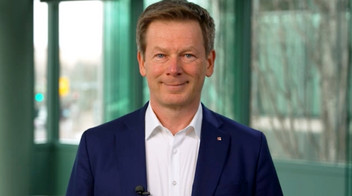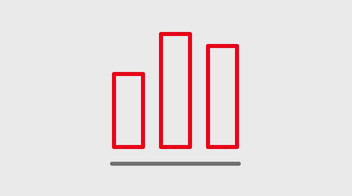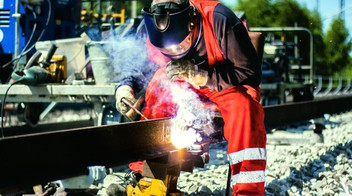Management approach and climate protection target
We aim to be climate-neutral by 2040. Our target year is therefore five years ahead of the Federal Government’s target year for Germany becoming climate-neutral. In defining climate neutrality, we adhere to the net zero standard of the internationally recognized Science Based Targets initiative (SBTi) and thus follow a 1.5°C path to which we committed in 2022. By the end of 2024, we will have our climate protection target reviewed and confirmed by the SBTi on the basis of absolute greenhouse gas reduction paths using scientific criteria. We are also part of the UN’s Race to Zero initiative.
Climate-neutral DB
In order to achieve our climate protection target, we are uniting the related activities across the Group under the umbrella of “Climate-neutral DB.” The project is developing greenhouse gas reduction pathways (phase-out plans), improving the transparency of planned measures and optimizing the solutions to the overarching challenges of greenhouse gas reduction. In addition to emissions from rail and road transport operations, emissions from buildings and stationary facilities are also being considered. New climate-friendly technologies are being tested and piloted across the business units. The implementation of our starter packages for diesel phase-out and heat transition is also managed and monitored by the project team.
In 2023, we backed up our climate protection target with year-by-year greenhouse gas budgets for the Scope 1 and Scope 2 emissions of the business units in the Integrated Rail System. From 2024, we will also monitor these accordingly during the business year. This means that we have a clearly defined greenhouse gas reduction path for these business units and their own assets used. For the expansion of these greenhouse gas budgets, we are currently developing a schedule for managing the relevant Scope 3 emissions. To this end, we have conducted a comprehensive Scope 3 screening for DB Group for the first time and identified the relevant categories. These are Scope 3.1 (purchased goods and services), 3.2 (capital goods), 3.4 (upstream transport and distribution) and 3.11 (use of sold products). The aim for Scope 3.1, 3.2 and 3.4 is to establish supplier engagement targets.
From 2024, the focus in monitoring target achievement will be on our absolute, and no longer our specific, greenhouse gas emissions. We continue to look at (specific) emissions related to transport performance figures such as volume sold, primarily to make the greenhouse gas efficiency of our means of transport transparent. Achieving a shift in the mode of transport to rail is key to meeting Germany’s climate protection targets. Even in a largely electrified transport sector, the low levels of friction generated by wheel-rail contact will be the most efficient way to use energy. On the road to a climate-neutral DB Group, we are using four main levers in the Integrated Rail System:
- Increase in the share of eco-power,
- Expansion of electrification,
- Diesel phase-out, and
- Start of the heat transition.
We have set ourselves ambitious milestones for this:
- In our buildings and stationary facilities, we have also started to switch the power supply to renewable energy sources. From 2025, we will be powering our depots, office buildings and stations in Germany with eco-power only.
- We want to increase the share of renewable energies in the DB traction current mix in Germany to 80% by 2030.
- In addition, we intend to cut specific greenhouse gas emissions globally by more than half by 2030 compared to 2006.
- We intend to have fully converted our train operating companies in Germany to eco-power by 2038 at the latest.
Further digitalization in the area of infrastructure and vehicles as well as capital expenditures in infrastructure also have a positive impact on our climate footprint and our contribution to climate protection. For example, we are currently developing a data-driven recommendation software package (recommender), which is to be used for the assessment of construction work based on capacity utilization and to identify optimal diversions for sections of line affected by construction. The target is to save energy. Following the successful testing and further development of the prototype, the recommender has been in operational use – as part of a pilot phase – in the planning of construction operations in two regions since November 2023. In 2024, the recommender is also to be used in other schedule phases.
DB Schenker is also making an important contribution to achieving the target of climate neutrality by 2040. To this end, DB Schenker is implementing several decarbonization measures, including the use of sustainable aviation fuel (SAF), marine biofuels, HVO and hydrogen trucks for land transport, the introduction of alternative drives and the expansion of the fleet of electric vehicles. By reducing the environmental impacts of its products and operating processes, DB Schenker enables its customers to transition to more sustainable transport methods and thus supports them in achieving their sustainability targets.
On our path to climate neutrality, we are also in dialogue with our stakeholders and cooperate with, for example, foreign train operating companies, including as part of the Europe’s Rail initiative and in working groups of the European Railways Association (CER).


